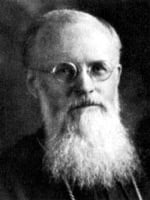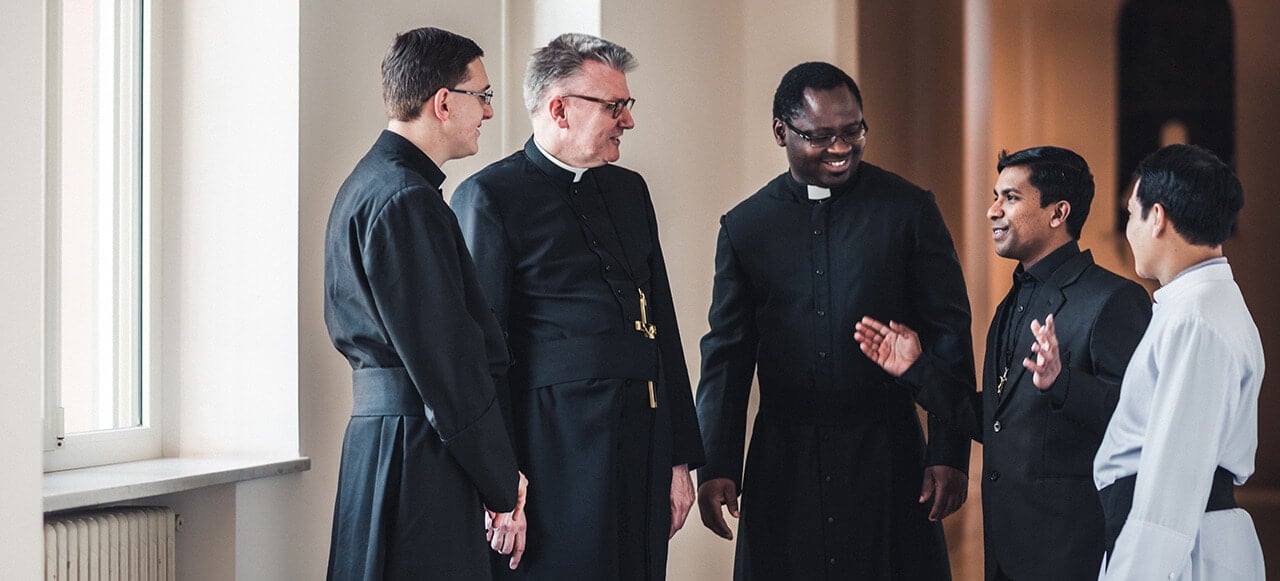
Ovide CHARLEBOIS, OMI
Who was that “évêque errant” (roaming bishop)? None other than Bishop Ovide Chalebois, who was born in Oka, Quebec, in 1862, became an Oblate of Mary Immaculate, and was ordained a priest in 1887. He was then sent to Fort Cumberland, in northern Saskatchewan, where he remained alone for sixteen years, amidst the local Amerindians. This “solitaire du Cumberland” (Cumberland recluse) as he was also called, became Bishop of Keewatin in 1910, with residence at Le Pas. He dedicated forty-six years of his life, in daily self-denial but with joy and happiness, at the service of a few thousand persons who were in his charge.
Continuous renunciation
After a relatively stable life of some twenty years, Bishop Charlebois found himself, at forty-eight obliged to travel by canoe or dog-sled for his pastoral visits. Weariness never stopped him as he carried his own supplies and birch-bark canoe over the long portages. We find in his journal a page which gives us a little idea of the difficulties encountered during his first pastoral tour, in 1911. He wrote: “I covered 2000 miles (3200 km) by canoe and 50 miles (80 km) on foot through the forest. I slept on the ground 60 times, under the protection of the small tent in which I celebrated Mass so often. I visited 14 missions, totaling 4500 Catholics. Six of these missions had never been visited by a bishop. I confirmed 1100 Amerindians whose fine dispositions greatly edified me.” He made similar voyages tens of times.
He often went without meals. For example, one New Year’s Eve he had been invited to the table of the “wealthy leader” at the Fort. Just as he was leaving for this celebration, a request came from a sick woman. She lived far from the mission; her hut was freezing and not very clean. The Oblate at once gave up his supper and left to hear the poor lady’s confession and bring her the viaticum. On his return to the mission he felt happier than “the king of England.” He wrote: “This joy surpassed all the joys in the world.”
The humor of a saint
One day, an unmarked shirt turned up in the laundry. Since a tiny louse seemed to be enjoying itself on it, a woman employee remarked: “That’s the bishop’s, that’s his identification mark.” The bishop pleasantly replied: “I hope they mark the shirt and leave my lice in peace.” Another time he offered this excuse to a friend for not going to visit him: “When I’m in the East,” he wrote, “I travel at full speed; but when I return here, I just can’t get back in step.”
As we can see from these few random traits taken from his life, “l’évêque errant” was not a simple traveler bent under the weight of heavy burdens. He was most of all a wholehearted man, a lovable Oblate missionary.
André DORVAL, OMI
